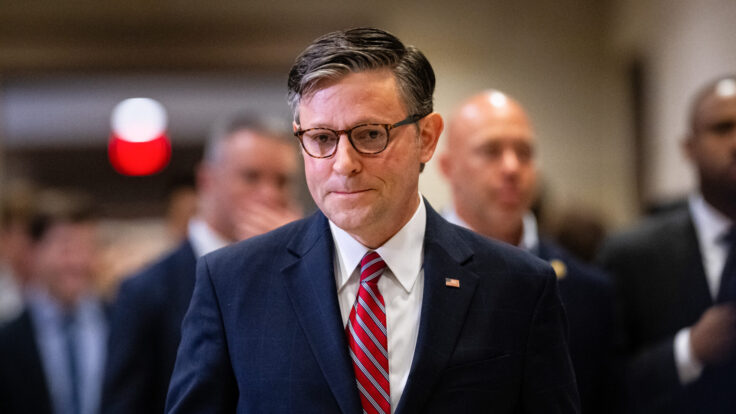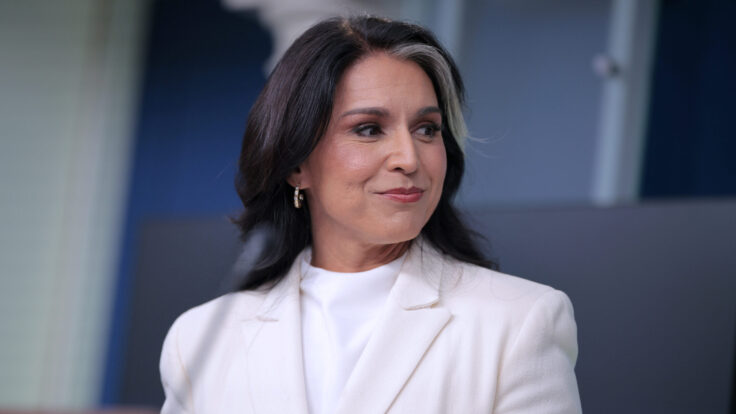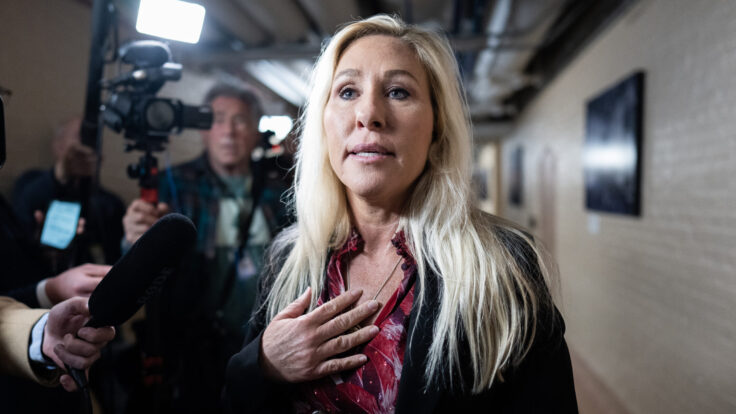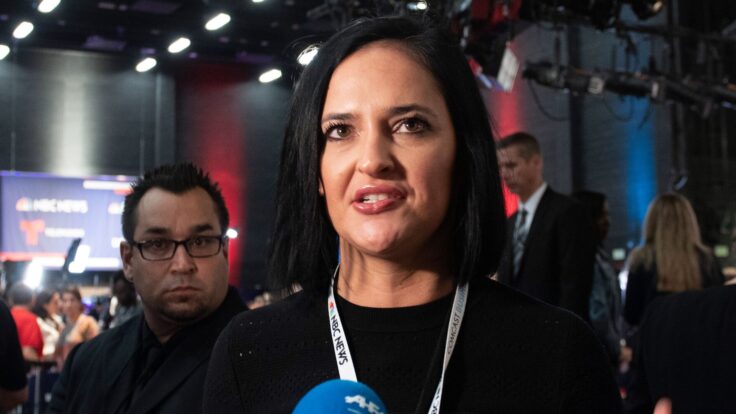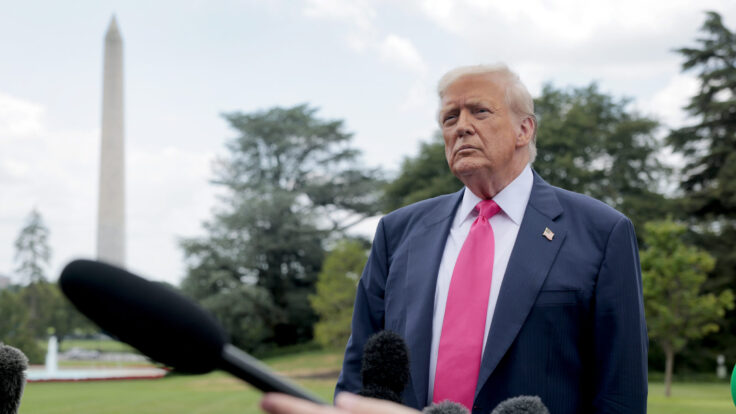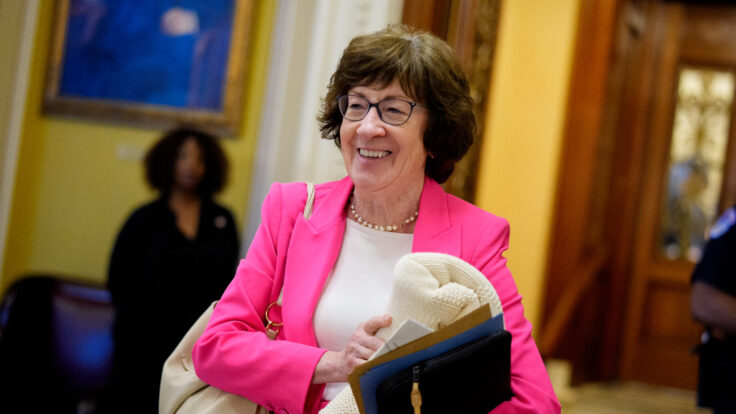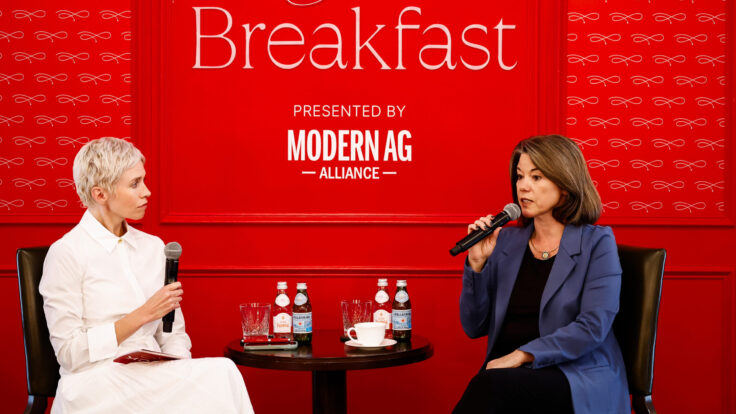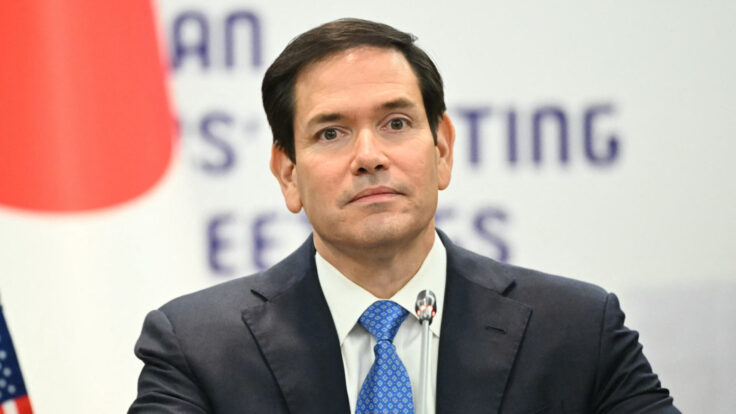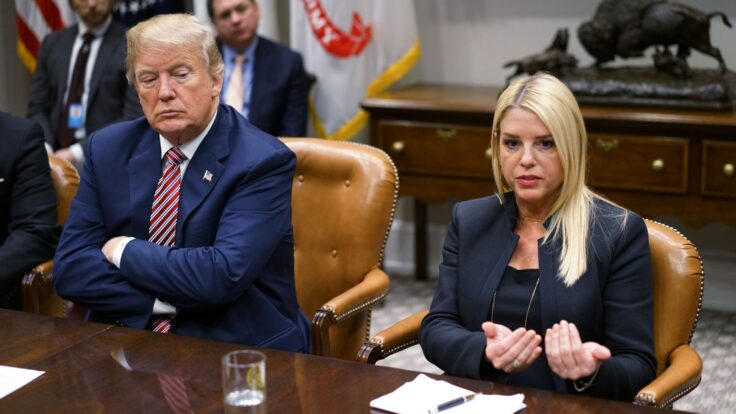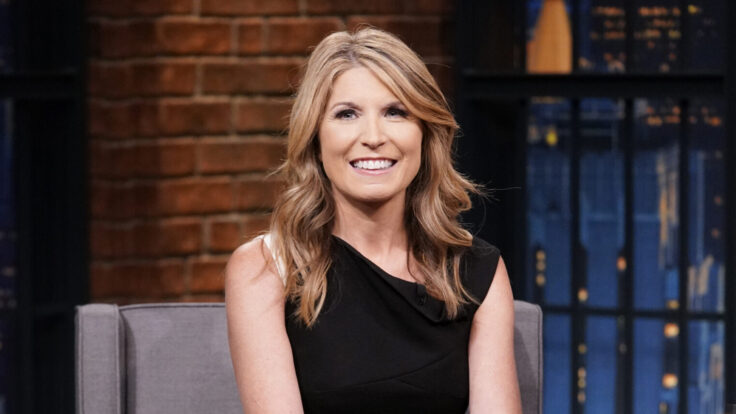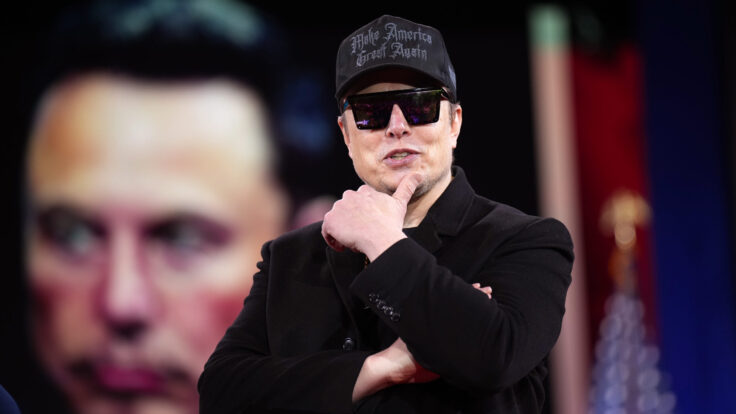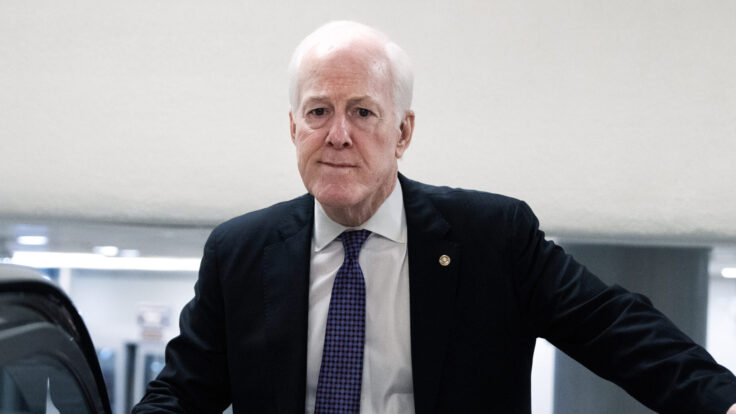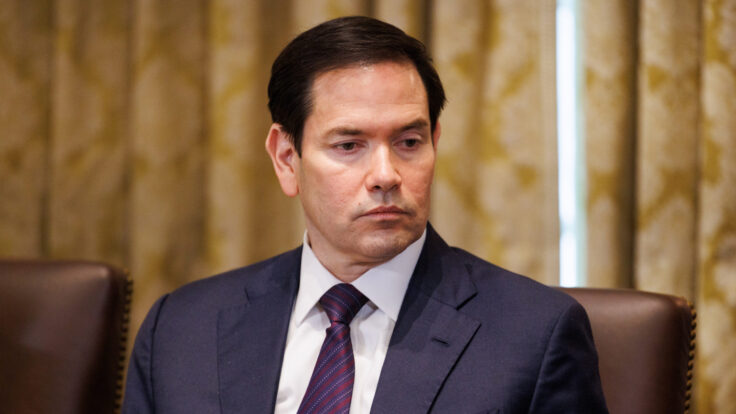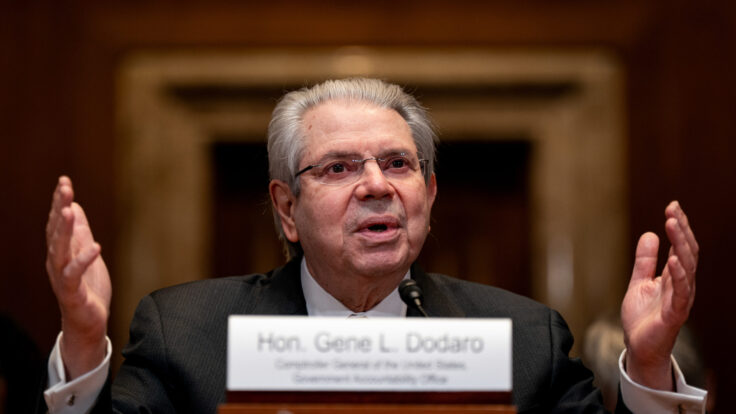 |
|
Hello, and welcome back to The Best & The Brightest, your daily dispatch on all things politics. It’s foreign policy Tuesday and I’m your host, Julia Ioffe.
Before we get to the meat and potatoes—Kamala Harris’s foreign policy and a telling personnel decision—I’m hearing lots of chatter from Russian friends and colleagues about a potential prisoner swap. It began when a half-dozen high-profile Russian political prisoners, including Ilya Yashin, Vladimir Kara-Murza, and several Navalny associates vanished from their prison cells in recent days. Authorities say they’re being transported to unknown locales and the state is not communicating with their families or lawyers as to where they’re going. As a result, speculation is running wild, especially in Russian opposition and independent media circles, that they are part of an imminent prisoner swap. The chatter has escalated to the point where some wonder whether a negotiation could even free jailed Americans Evan Gershkovich and Paul Whelan, since those are the two Americans Joe Biden wants to bring home.
I’ve reached out to several sources in the administration to ask if a prisoner exchange is really in the works and have been met with uncharacteristic silence. That made me curious, as it did when one source did respond with the grimacing emoji—😬—and punted. I also called John Kirby, N.S.C. spokesman, and asked him if there was anything he could tell me. “I can’t,” he said, haltingly. “I can’t.” Then he added, “I think you can understand we wouldn’t want to mess anything up to prevent there from being a positive result.” Meaning, commenting on this matter, confirming or denying the rumors, would be unwise.
So, uh, watch this space. If there really is something in the works and the Biden administration pulls this off, bringing home jailed Americans would be a major accomplishment, especially during an election year, and especially since Donald Trump bragged that Putin would release Gershkovich, in particular, “for me, but not for anyone else.”
Now, here’s Abby Livingston from the Hill, which is starting to wind down ahead of its August recess…
|
| Dem Ad Wars & McCarthy in the Wings |
|
While the reconfigured presidential race continues to captivate the news media, the hushed political conversations back on the Hill are settling back onto routine—if no less combustible—topics. There are only a handful of primaries left on the docket, and the House ad wars are raging with a mix of primary and general election ads hitting the airwaves. Meanwhile, everyone wants to know who the next White House chief of staff will be—even if no one has a clue who will win the White House. Here’s the latest buzz…
- The over-under on Biden: Joe Biden is no longer running for president, but he is everywhere in political ads. In the Democratic primary in Missouri’s hotly contested 1st District, where squad member Cori Bush is fighting for her political life against challenger Wesley Bell, the Justice Democrats PAC put up an ad touting her pro-Biden voting record. Meanwhile, the pro-Israel United Democracy Project is hammering Bush for voting “against President Biden and Democrats on the infrastructure bill.” In a comparable matchup in June, fellow squad member Jamaal Bowman lost his primary in New York’s 16th district after being attacked over his perceived insufficient support for Biden’s agenda.
Of course, it’s not all wine and roses on the airwaves for the outgoing president. The N.R.C.C.’s first two ads have attacked Alaska at-large Democratic incumbent Mary Peltola by tying her to Biden. The committee released its second ad against her today, castigating Peltola for voting with Biden 80 percent of the time and accusing her of covering up his mental decline. Meanwhile, in New York’s 19th District, Josh Riley, the Democratic challenger in a hotly contested race with Republican Marc Molinaro, is running an ad distancing himself from Biden and his border policy.
It will take a few weeks to get a handle on the president’s lame duck standing, but for now, embracing his record seems to help Democrats in primaries and hinder them in the general election.
- McCarthy gets a hearing: Axios added to speculation that Kevin McCarthy is being considered for chief of staff in a second Trump administration, as an “alternative” to campaign enforcer Susie Wiles, who’s perceived as the frontrunner. It’s an interesting notion that a former speaker would be interested in a staff role, even one as consequential as C.O.S. Most former speakers tend to check out/cash in once they leave office. Traditionally, they get the political equivalent of a gold watch—serving on corporate boards, making the transition to lobbyist, getting paid to give speeches. While White House chiefs are enormously powerful, at the end of the day, it’s still a staff job, not a principal role. But McCarthy may be driven by his ambition to remain a national political player after an abrupt exit that most certainly was not on his own terms.
Looking back, Rahm Emanuel’s dream was to be the first Jewish House speaker—an ambition that would have been incredibly hard to achieve in that 2006-08 era, with the hindsight of history, given the longevity of Nancy Pelosi’s reign. Back in 2008, Emanuel’s decision to quit Congress and accept President-elect Obama’s request to serve as his chief of staff was seen as a political sacrifice. Today, of course, Emanuel is the U.S. ambassador to Japan, while Pelosi has raised the bar for a post-speakership: being a rank-and-filer who occasionally asserts herself to do things like take down an American president.
|
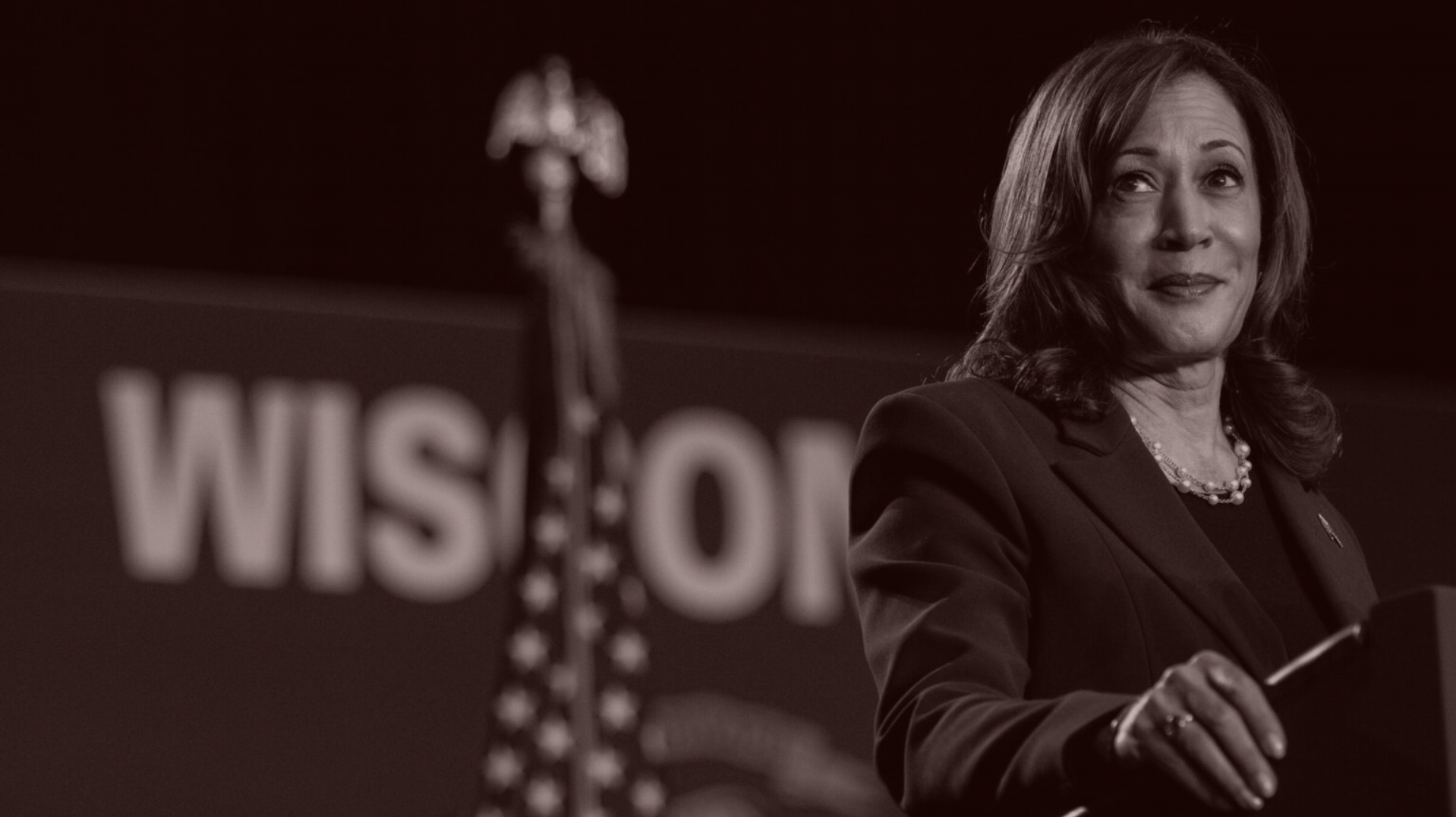 |
| Harris’s Full Nelson |
| Washington is racing to suss out the foreign policy agenda of Kamala Harris, whom national security types view as a “blank slate.” The selection of a new advisor to lead her campaign’s policy team may provide some clues. |
|
|
|
| Nine days after Joe Biden ended his reelection campaign and Democrats quickly rallied around Vice President Kamala Harris as their de facto presidential nominee, the fog of defeatism has lifted. The polls are rebounding, money is pouring in—$200 million and counting—and partisans are genuinely fired up. Megan Thee Stallion headlined an Atlanta rally. Jeff Bridges dialed into a White Dudes for Harris event. However long the honeymoon period lasts, Democrats now see a clear path to victory—finally.
What’s far hazier, as I noted last week, is how Harris would conduct American foreign policy if she is elected president. While Harris cements her status as the Democratic standard-bearer for 2024, the D.C. foreign policy establishment has been trying to decipher the agenda of a woman that many national security types in Washington still refer to as a “blank slate.”
The mystery largely reflects Harris’s trajectory to the White House, from the California attorney general’s office to the United States Senate, where Harris served on the budget, homeland security, and judiciary committees. That is, before the White House, Harris was largely a resident of the domestic policy half of D.C. Biden, by comparison, was a leader of the city’s foreign policy establishment, thanks to his years on the Senate Foreign Relations Committee and later, as Obama’s V.P., in charge of Ukraine and other overseas concerns. And as anyone who lives here knows, the two D.C.s don’t really mix.
Career foreign policy types have long detected a certain uneasiness in the vice president when it comes to foreign policy, and people who briefed her early in the Biden administration recall her seeming green on the issues. And though she’s led the U.S. delegation to the Munich Security Conference in Biden’s stead for the last three years, some in the delegation told me she always seemed a bit out of her depth and uncomfortable at the conference. (Though, to be fair, what woman hasn’t felt uncomfortable in that sea of old, white men?)
Efforts by Harris’s team to ameliorate her discomfort could at times produce Veep-like results. At the reception for the U.S. delegation that she and Antony Blinken co-host every year, for example, she and her staff would time her entrance to later in the party, when enough of the delegation was present and to avoid the awkwardness of presiding over an empty room. But given the number of competing events around the conference, members of Congress got fed up with sitting around, waiting for the V.P., and began to skip the reception altogether.
As V.P., of course, Harris has been exposed to a lot, including the diplomacy required to deal with migration from the Northern Triangle and Biden including her in most meetings with visiting heads of state. “Overall, Harris has met with some 150 foreign leaders and visited 21 countries as vice president, including five trips to Asia and four to Africa and the Middle East,” Ian Bremmer, head of Eurasia Group and foreign policy gadfly, recently wrote in his private newsletter. “Most U.S. allies know her as part of the core Biden team.” As Bremmer also noted, Harris “first met Ukrainian president Volodymyr Zelensky before the invasion and delivered U.S. intelligence to him about the impending attack, helping forge a warm relationship between the two,” whereas Biden was “put off by Zelensky personally blaming him for not facilitating Ukraine’s NATO membership and doesn’t particularly trust him.”
With the Democratic establishment, including the national security one, firmly behind her, and an opponent whose foreign policy is rooted in destruction of institutions and norms, Harris will likely soon shed doubts she and others may have about her foreign policy chops. “She didn’t exactly cut her teeth in the foreign policy realm but has also, over the last four years, had the most intensive on-the-job training one could imagine,” one senior administration official told me. “She’s a prosecutor, she’s someone who is steeped in the law, she’s someone who believes in rules of the road and international law, so a lot of this has come naturally to her.” |
|
|
| Harris will also be getting reinforcements as she and her team continue to take over the infrastructure of the Biden campaign and mold it in her image. Three sources tell me that Brian Nelson will head the policy team on the Harris campaign, the same job that Jake Sullivan performed for Hillary Clinton’s 2016 campaign. This news has not been announced, the campaign is keeping it tightly under wraps, and they are still finessing Nelson’s title since the Biden campaign already has a policy chief. But hey, new candidate, new policy chief, right? When I reached out to the campaign, they declined to comment on the record.
Nelson, who is currently the under secretary of treasury for terrorism and financial intelligence, has been one of the Biden administration’s point people for sanctions, including the unprecedented sanctions rolled out against Russia in the wake of its full-scale invasion of Ukraine. But perhaps more importantly for Harris, he is also a veteran of California politics and was general counsel to the California Department of Justice. In the latter role, he was an advisor to Harris when she was California attorney general.
Nelson is widely known and respected in the national security community. He has worked on both the domestic policy issues Harris cares about—rule of law, criminal justice reform, etcetera—as well as the foreign policy issues where she needs to find a balance between continuity with Biden and differentiating herself. Nelson is “kind of a jack of all trades,” said a second senior administration official, “and she probably feels comfortable with him.” He can also effectively bridge the two D.C.s for Harris.
He is also the first significant policy personnel change that could give Blob-watchers a clue as to how a President Harris would staff her N.S.C., State, Pentagon, and I.C. “The message has been conveyed broadly that people should expect to see continuity in terms of personnel in a Harris administration,” said the first senior administration official. “Obviously, there will be exceptions, but there will be a predisposition to retaining as much talent as possible.” The Nelson pick seems to reflect a desire both to retain that talent—the Biden administration was praised in its early days for getting the best and the brightest of the foreign policy world—but that the order and emphasis will be different, as will the personnel hierarchy.
When I wrote about this last week, one source close to the administration noted that, “Unlike her predecessors, she has a lot of latitude to put together a team that she actually wants.” The Nelson pick tells us that Harris is about to do just that. |
|
|
| That’s all from me this week, folks. I’ll see you back here on Tuesday. Until then, good night. Perhaps there’ll be a prisoner exchange.
Julia |
|
|
|
| FOUR STORIES WE’RE TALKING ABOUT |
 |
|
 |
|
 |
| Gucci Murmurs |
| On the speculation surrounding Jonathan Anderson. |
| LAUREN SHERMAN |
|
 |
|
|
|

|
 |
|
|
|
Need help? Review our FAQs
page or contact
us for assistance. For brand partnerships, email ads@puck.news.
|
|
You received this email because you signed up to receive emails from Puck, or as part of your Puck account associated with . To stop receiving this newsletter and/or manage all your email preferences, click here.
|
|
Puck is published by Heat Media LLC. 227 W 17th St New York, NY 10011.
|
|
|
|
